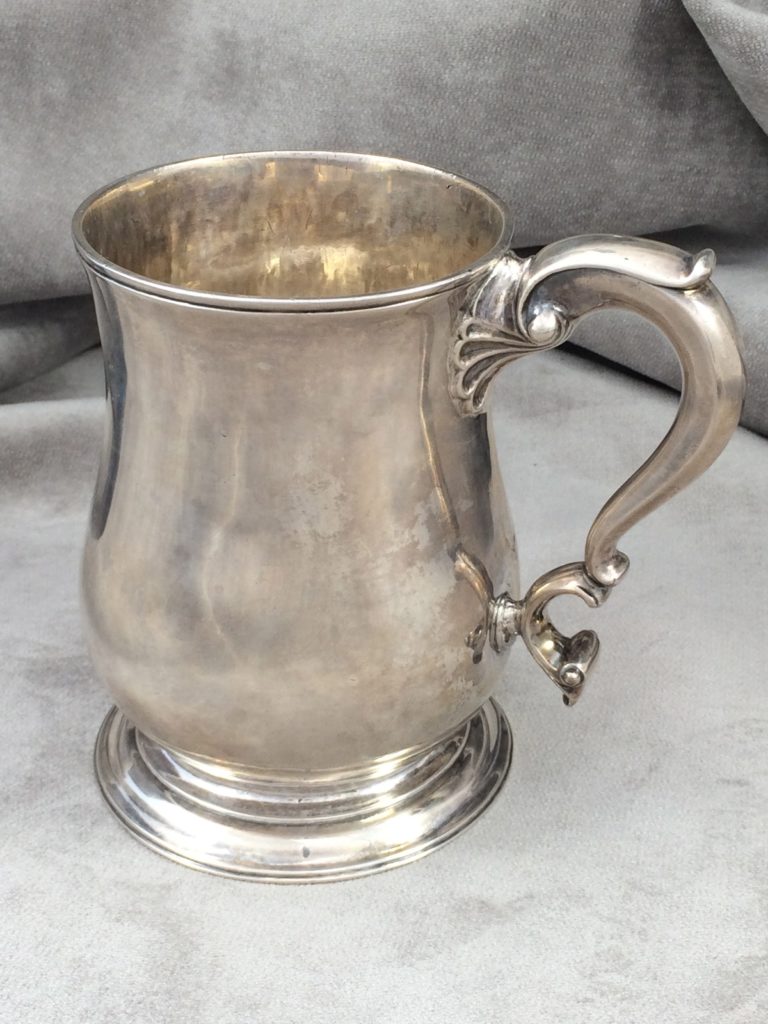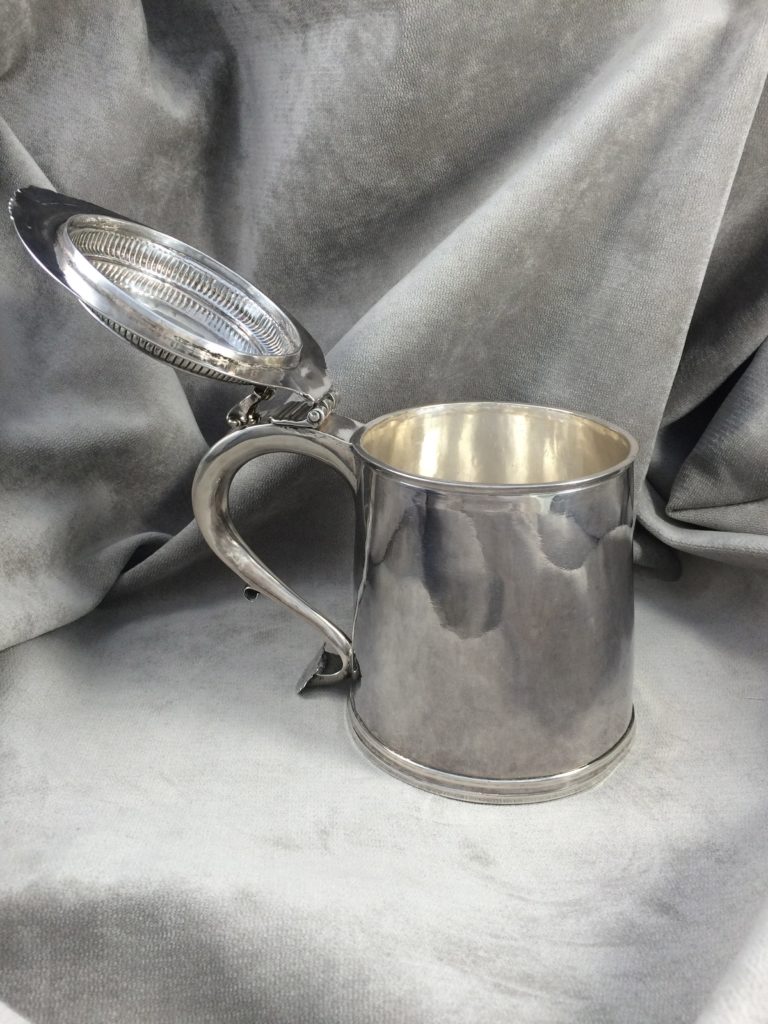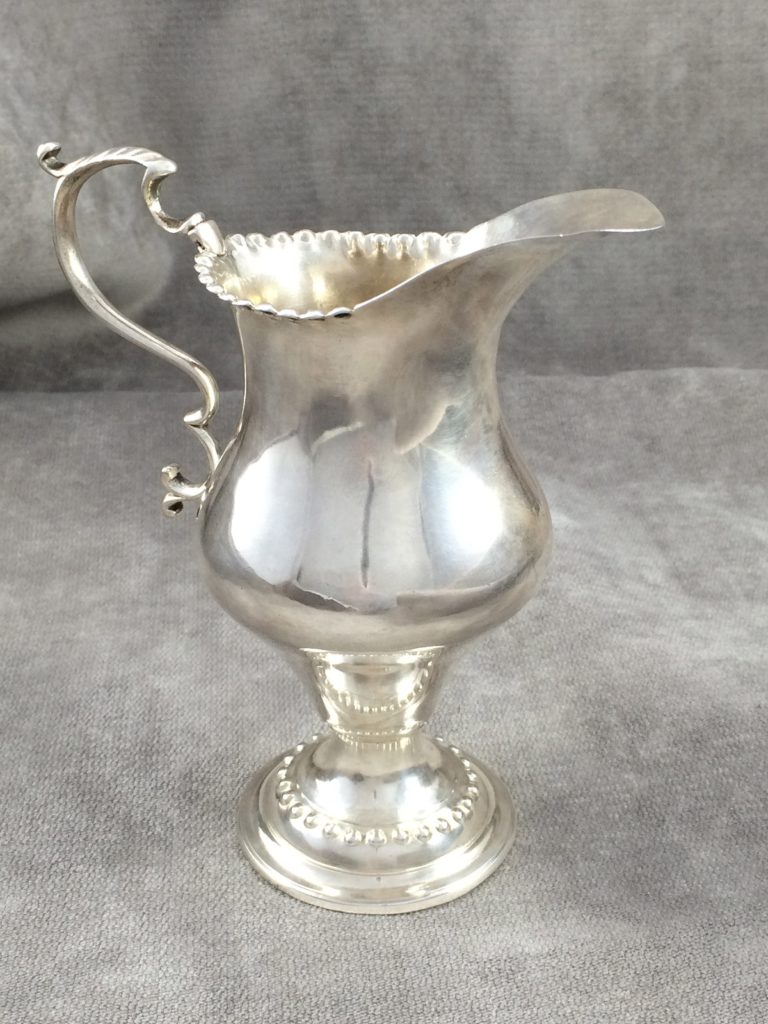Popular American Silversmiths in the Colonial Era

American silversmiths during the colonial era were thought of as sculptors or artists. Some silversmiths stood out amongst the rest and Lamb Silver is proud to feature these rare antiques.
Silversmithing was considered a “luxury” trade, as most common people used items that were made of wood, pewter or other cheaper materials. This is reflective in the types of silver antiques we see from this time period. For instance, drink ware such as punch strainers and tankards were an important part of entertaining during colonial times. Also, there are many items used for communion services such as chalices and ecclesiastical plates. These items were not common in all homes, but did display wealth and class.
Many large towns in the original 13 colonies had at least one working silversmith. This was a popular trade, as evienced by the numerous men that were engaged in it. There were some whose craftsmanship and artistic quality stood out, and here we have listed a few. Lamb Silver is proud to feature some of our most rare antiques from popular American silversmiths.
New York, NY
Myer Myers 1723-1795
Myers was a leading silversmith from New York City in the late 18th century, towards the end of the Colonial period. Finding his works is extremely rare, since only 380 objects survive with his hallmark. His works, like the Silver Cann pictured here, were created for the NY elite.
Boston, MA
Jeremiah Dummer 1643-1718
Dummer was the first American-born silversmith and his works are rare and highly valued. Only around 100 of his works may have preserved. This silver tankard shown here, is one of the pieces that have survived. Drummer’s hallmark of “ID enclosed over a fleur-de-lis in a heart or occasionally ID in a rectangle” can be seen on the base, marking its authenticity.
Charleston, SC
Thomas You 1730-1786
Thomas You was not only a silversmith, but also an important patriot of his time. He boycotted British-import goods and promoted American-made products. Although we do not know exactly where Thomas You was born or how he received his training, he is known for helping grow the craftsman community of Charleston as well as supporting the Charleston sect of Sons of Liberty.



